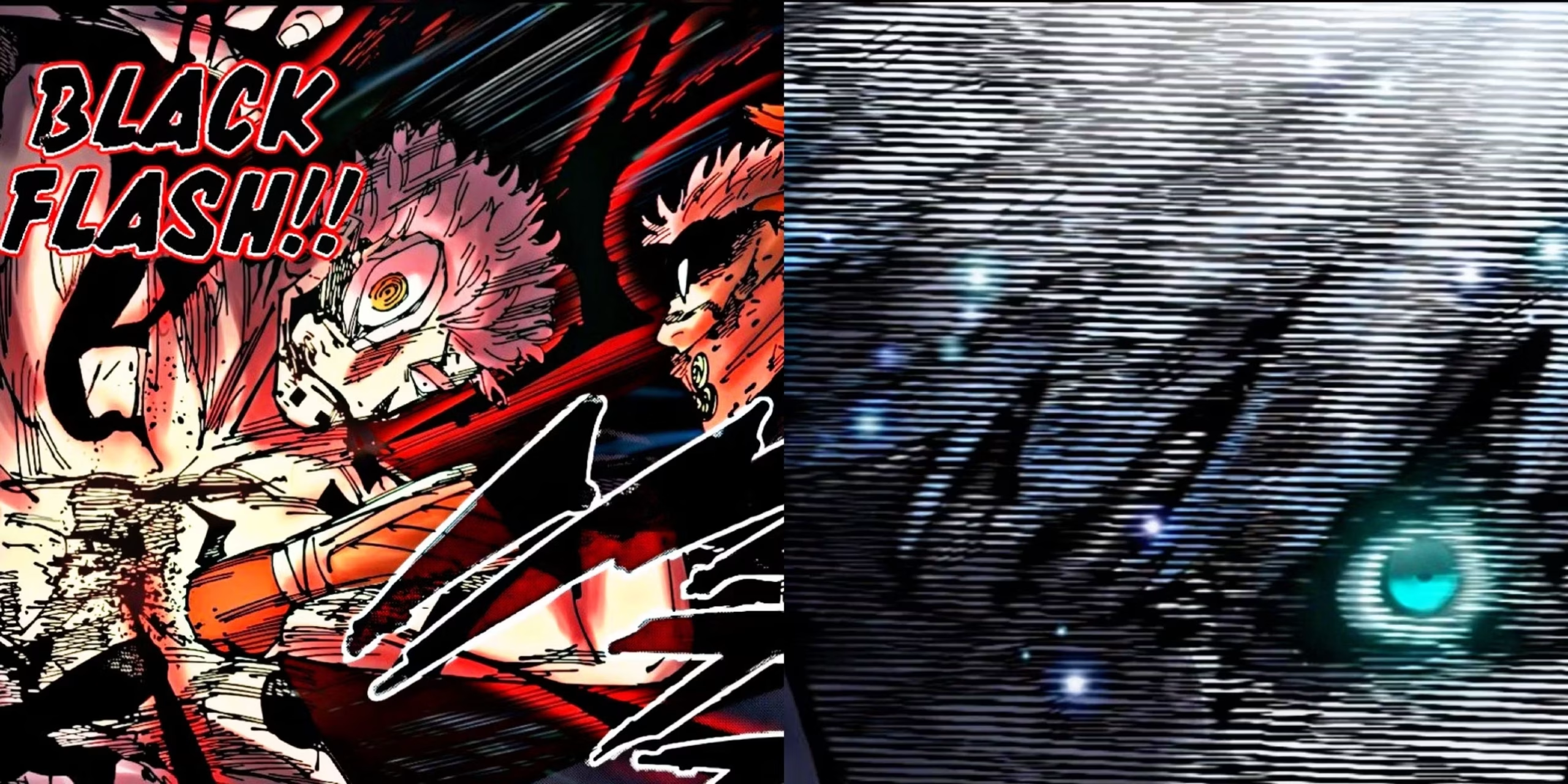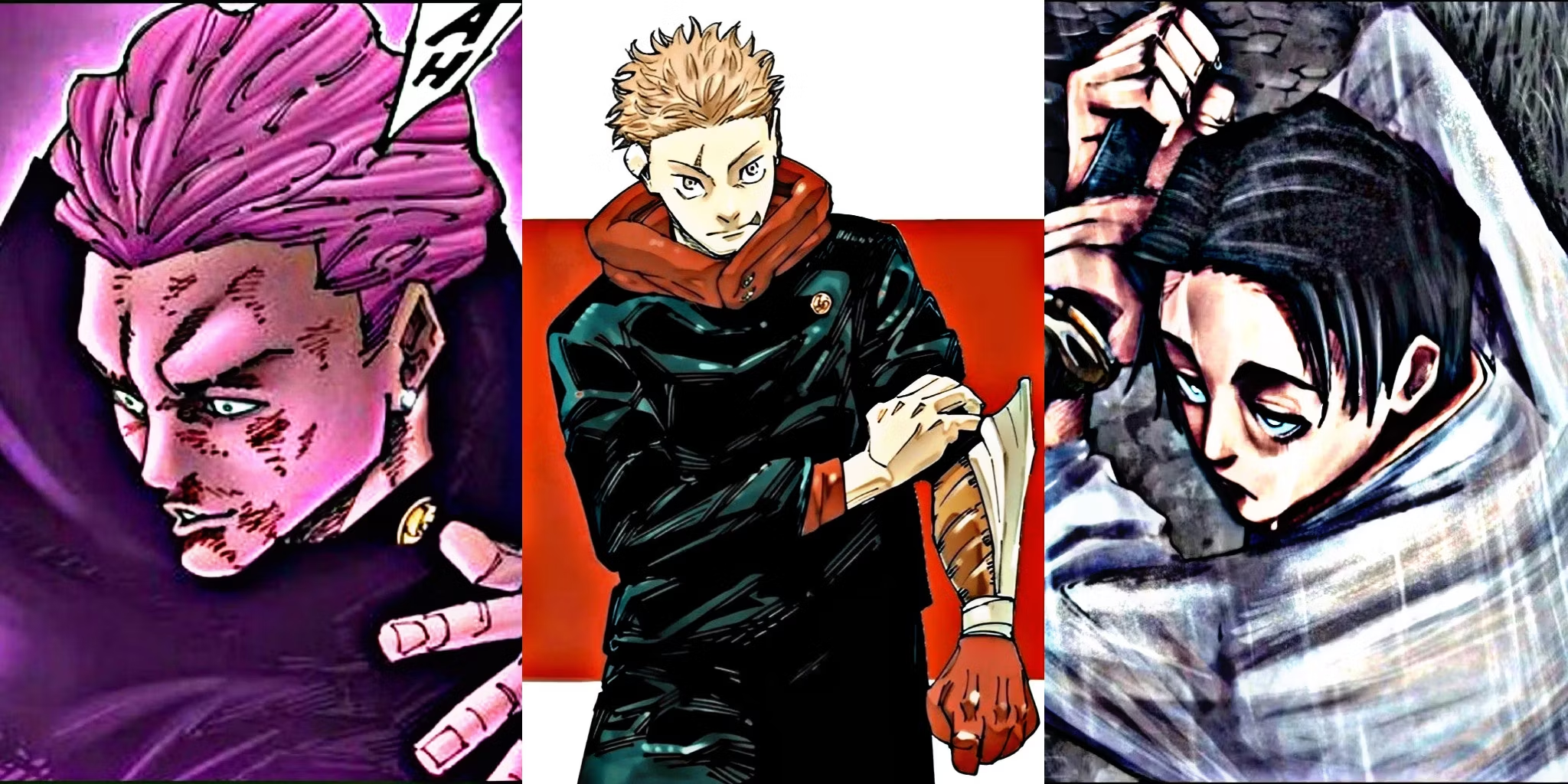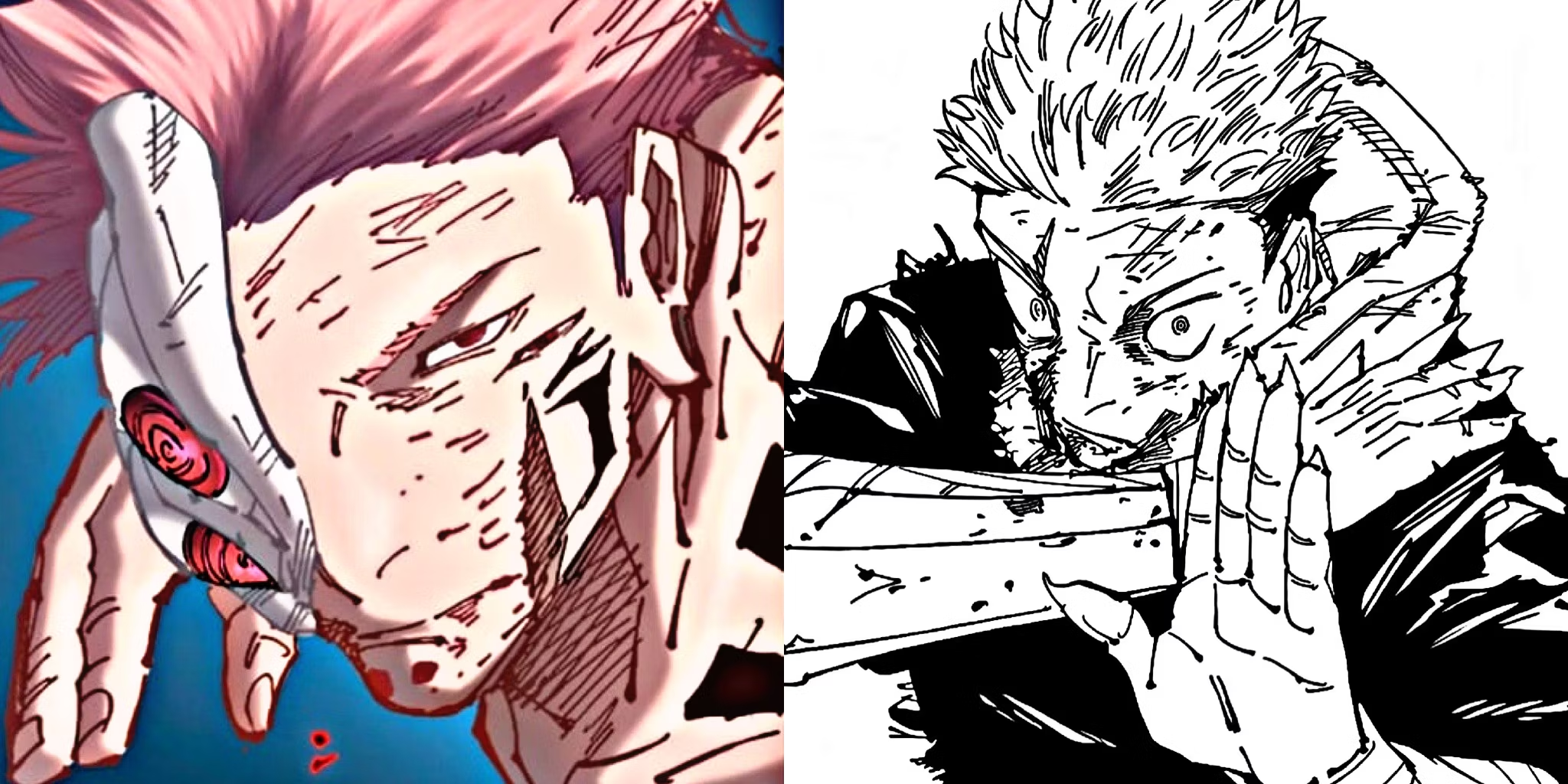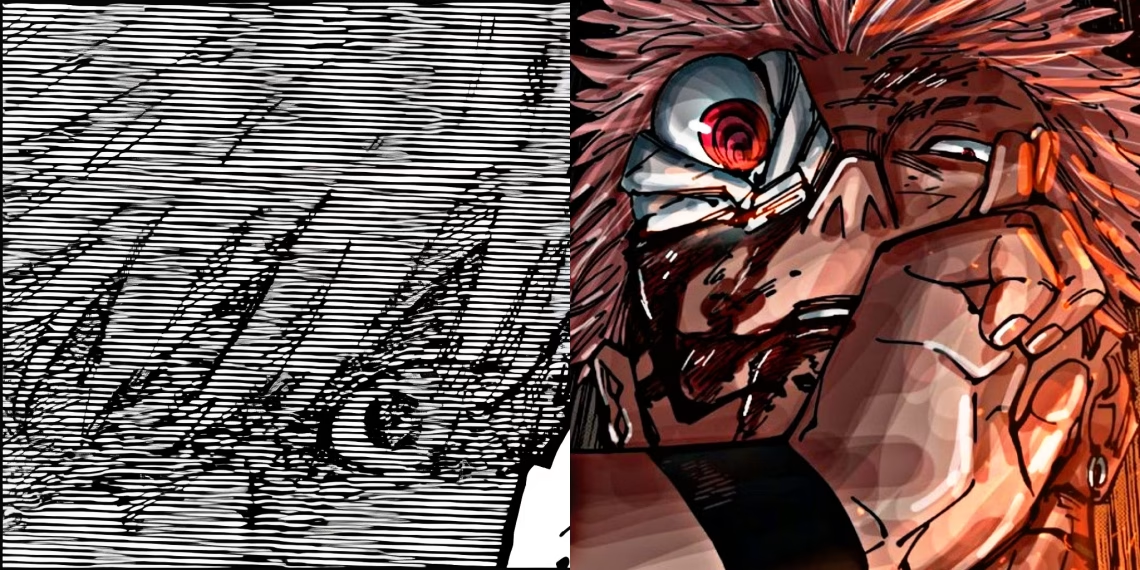In the latest installment of Jujutsu Kaisen, chapter 261, fans are once again confronted with the unexpected demise of Sukuna, the King of Curses. However, the twist lies not in Sukuna’s defeat, but in the manner of his adversary’s victory, which has left many questioning the moral compass of the sorcerers.
Spoilers have hinted at the return of Gojo Satoru, albeit in a surprising form, as Yuta Okkotsu takes possession of the revered sorcerer’s body through Kenjaku’s cursed technique.
The chapter unfolds with Sukuna’s acknowledgment and praise of Yuta’s audacious move, a rare occurrence that underscores the dire situation the sorcerers find themselves in.
The Moral Quandary of Jujutsu Kaisen: Sukuna’s Victory in Ideological Warfare

With Gojo’s return, albeit in an unexpected guise, the balance of power seems to shift in their favor momentarily. Yet, the means by which they achieve this victory raise ethical dilemmas that challenge the very essence of their cause.
The flashback to the Perfect Preparation arc sheds light on the contentious debate among sorcerers regarding the use of Kenjaku’s cursed technique. Yuta’s insistence on independence from Gojo’s dominance resonates with a faction of sorcerers who advocate for a more self-reliant approach. However, the proposal to merge Rika with Kenjaku’s technique to facilitate Yuta’s eventual possession of Gojo’s body meets resistance from those wary of the moral implications.
Yuta’s plea for autonomy culminates in a pivotal moment where he seeks Gojo’s consent to inhabit his body temporarily. The subsequent clash between Yuta, now in possession of Gojo’s formidable power, and Sukuna, epitomizes the clash of titans in the Jujutsu Kaisen universe. Domain expansions are unleashed, signaling the intensity of the confrontation and the stakes at hand.
Jujutsu Kaisen Challenges Moral Dichotomy

Amidst the spectacle of battle, the narrative delves into the ethical quandary faced by the sorcerers. Maki’s apprehension about the use of Gojo’s body as a vessel for combat underscores the internal conflict within their ranks. The decision to resort to such drastic measures speaks to the desperation of their situation, yet it also tarnishes the integrity of their cause.
Sukuna’s acknowledgment of Yuta’s tactics serves as a poignant commentary on the moral ambiguity of the sorcerers’ actions. The King of Curses, known for his ruthless pragmatism, is taken aback by the depths to which his adversaries are willing to stoop in their pursuit of victory. The use of Gojo’s revered body as a tool of war represents a departure from the principles espoused by the sorcerers, blurring the lines between hero and villain.

Throughout the series, Sukuna has embodied the archetype of the antagonist who embraces amorality in his quest for power. His manipulation of Yuji’s and Megumi’s bodies serves as a stark contrast to the sorcerers’ espousal of justice and righteousness. However, the revelation of Yuta’s controversial tactic forces a reckoning with the moral complexities inherent in their struggle against the King of Curses.
In essence, the battle against Sukuna transcends mere physical combat; it is a clash of ideologies that exposes the fragility of moral certitude. The sorcerers’ willingness to compromise their principles in the face of imminent defeat underscores the gravity of the threat posed by Sukuna.

As the lines between right and wrong blur, the true nature of victory becomes increasingly elusive, leaving both characters and readers to grapple with the consequences of their choices.
Jujutsu Kaisen chapter 261 marks a pivotal moment in the series, wherein the moral integrity of the sorcerers is called into question. Sukuna’s unexpected acknowledgment of Yuta’s unorthodox tactics serves as a sobering reminder of the ethical complexities inherent in their struggle against the King of Curses. As the battle of ideologies rages on, the true cost of victory remains uncertain, casting a shadow of doubt over the fate of all involved.




